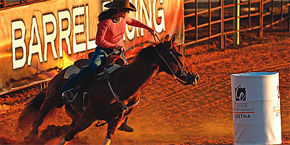Seminoles Seek To Join Slots Lawsuit
June 18, 2015
The Seminole Tribe of Florida has joined state regulators in their request for a rehearing in a game-changing appellate ruling that opened the door for slot machines at a Gadsden County horse track operated by the Poarch Creek Indians, along with tracks in at least five other counties.
The 1st District Court of Appeal decision ordering state regulators to grant a slots license to Gretna Racing could cripple the tribe’s revenues, Barry Richard, a lawyer for the Seminoles, argued in a brief filed Tuesday. Gretna Racing opposes allowing the tribe to join the case on the side of the state Department of Business and Professional Regulation, represented by Attorney General Pam Bondi’s office.
 “Only a few decades ago, the tribe and its citizens were impoverished. Today, the tribe’s successful casinos fund tribal programs including health care, the environment, education, and law enforcement, as well as other benefits for tribal members,” Richard wrote in a 19-page “amicus,” or friend-of-the court, brief. “The tribe’s self-sufficiency, and indeed its economic survival, depends upon the revenues from the businesses it has built up in reliance on the substantial exclusivity that it bargained for, and that the state agreed to, in the compact.”
“Only a few decades ago, the tribe and its citizens were impoverished. Today, the tribe’s successful casinos fund tribal programs including health care, the environment, education, and law enforcement, as well as other benefits for tribal members,” Richard wrote in a 19-page “amicus,” or friend-of-the court, brief. “The tribe’s self-sufficiency, and indeed its economic survival, depends upon the revenues from the businesses it has built up in reliance on the substantial exclusivity that it bargained for, and that the state agreed to, in the compact.”
In a 2-1 vote, a panel of the appeals court last month decided that the 2009 law at the heart of the case allows pari-mutuels, in counties where voters have given approval, to offer slot machines. But dissenting Judge Scott Makar, state regulators and the Seminoles argue that the historically gambling-averse Legislature has to also give the counties permission for slots.
The law, which went into effect in 2010, accompanied an agreement, called a “compact,” that set the parameters for the Seminoles’ slot machine operations and also gave the tribe exclusive rights to offer banked card games, including blackjack. In exchange, the tribe agreed to pay the state a minimum of $1 billion over five years. Under terms of the compact, the tribe’s payments to the state would decrease if additional pari-mutuels in Broward or Miami-Dade were allowed to add slots. The Seminoles could stop payments altogether if tracks or frontons outside of the two counties began operating the lucrative one-armed bandits.
The Seminoles had tried unsuccessfully for years to get the state to negotiate about slots, but state officials entered the agreement only after voters authorized slots at pari-mutuels in Broward and Miami-Dade counties. Federal law permits tribes to conduct any kinds of gaming allowed elsewhere in the state.
Echoing arguments made by Bondi’s lawyers, who called the 2-1 decision issued on May 29 a “jaw-dropping gambling expansion, Richard wrote that the majority failed to take into account what lawmakers intended when they passed the law and approved the compact. The agreement was “intentionally designed to limit the geographical scope of gaming,” Richard wrote.
“It defies logic to conclude that the Legislature would enact a law with the express purpose of limiting the expansion of gaming in Florida and providing for an increase in revenue that is dependent upon Seminole gaming exclusivity and, in the same bill, authorize the spread of gaming to every county in the state and allow any of 65 counties to unilaterally torpedo the compact, thereby causing the loss of billions of dollars in state revenue,” he wrote.
The state’s request asks that the full appeals court rehear the case, which is known as seeking an “en banc” hearing.
The majority in the May 29 ruling also asked the Florida Supreme Court to weigh in on the issue about the Gretna facility, which has a history of controversy. The Gadsden County track, which is in a largely rural area west of Tallahassee, is believed to be the first facility in the country to receive a pari-mutuel license for rodeo-style barrel racing, something a court later decided state regulators had granted in error.
The May ruling could have statewide implications. Voters in five other counties — Brevard, Hamilton, Lee, Palm Beach and Washington — have also given slots a thumbs-up. The Palm Beach Kennel Club is the only other facility that has applied for and been denied a slots license.
by Dara Kam, The News Service of Florida
Comments
3 Responses to “Seminoles Seek To Join Slots Lawsuit”



I don’t see how a establishment up in the north part of the state could affect a establishment in the south part of the state……..especially that far down.
The Seminoles have enjoyed their monopoly on gambling in the state and now others want to sop their biscuit on the gravy plate…as far as the politicians, well they are still crunching the numbers…
Sounds like tribal warfare is coming.